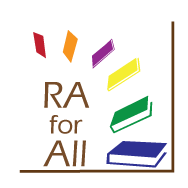For example, I regularly read (and post links from) The Millions, an online magazine that focuses on books (among other things), but I have never used it as a resource for conducting book discussions.
Well, today that changed as I was perusing the archives and found an essay entitled, "The Art of the Final Sentence" by Jonathan Russell Clark. In this essay Clark discusses some famous last lines and their purpose in the story.
When I lead a book discussion, I leave time for my group to have a fairly open ended discussion about the "ending." I don't necessarily ask a specific question, rather I simply offer a chance for the ending to be discussed. I purposely keep it vague for a couple of reasons:
- I don't want to bias the group with my opinion unknowingly. I really want to hear what they think about the way the author wrapped it all up.
- The more open ended the question, the more chance, I have found, that those who haven't volunteered to speak up as of yet often will. When you ask a question about the ending, those that have been quiet know their chances are running out, and if the question is open ended enough, they can say just about anything.
Now sometimes this strategy works brilliantly. Sometimes there is a lot to say, especially if the author left the ending open or unclear. Other times, there isn't any interest in the topic of the conclusion and I am grasping to find a way to talk about how the author closed his or her novel.
However, I never thought of taking the final sentences, reading them out loud, and then asking, "How do these words represent the story you read for the previous 300ish pages?"
This question still fosters an open discussion of the ending but with a bit more structure than simply saying, "Okay guys...ending...what did you think?"
As I saw in Clark's essay, ending sentences are the author's only chance to "get real." Clark uses examples to illustrate many different things ending lines can do like emphasizing overall themes or making statements about life in general, among others
But most interestingly, Clark talks about how closing lines, unlike opening lines, need the context of the entire book that came before in order to be understood. This got me thinking about how wonderful it would be to OPEN a discussion with closing lines.
Read the essay for yourself, but the inspiration I am taking from it is this-- in my next discussion, I am going to use the closing lines of the book early in the meeting in order to facilitate a broader discussion about the book as a whole.
One final note from the author before you click though. He has more articles in this series that you can also use to help shape your book discussions; essays that get to the heart of why and how authors write, issues that are perfect for rich discussions:
This completes a series of essays on craft that I privately refer to as “The Art of…: The Series.” (You can see why the name has remained private.) Previous entries include Epigraphs, the Opening Sentence, Close Writing, and Chapters.









No comments:
Post a Comment